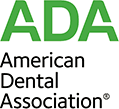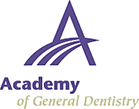Sleep Apnea FAQ’s
September 9, 2016
 Sleep apnea can be a very disruptive condition that puts both your health and quality of life at risk. Surprisingly, it is a sleep disorder that can a qualified dentist can actually treat in many cases. Here are a few basic questions that patients have regarding sleep apnea and whether or not a dentist can help.
Sleep apnea can be a very disruptive condition that puts both your health and quality of life at risk. Surprisingly, it is a sleep disorder that can a qualified dentist can actually treat in many cases. Here are a few basic questions that patients have regarding sleep apnea and whether or not a dentist can help.
How do I know if I have a sleep disorder?
Did you know that there are more than 80 different sleep disorders recognized by the International Classification of Sleep Disorders (ICSD, 2005)? While each disorder has specific symptoms, they tend to share the following signs:
- excessive daytime sleepiness
- insomnia or non-refreshing sleep
- parasominas (unwanted behaviors that occur during sleep)
What is sleep apnea?
Sleep apnea refers to the repeated pauses of breathing during sleep due to airway obstruction. Sleep apnea patients often snore and wake up gasping for air throughout their nighttime sleep. Sleep apnea can be mild, moderate or severe. It is important that you determine the severity of your condition before implementing an appropriate treatment plan
Do all snorers have sleep apnea?
The presence of snoring is a strong indicator for sleep apnea, but not all sleep apnea sufferers will snore. Some patients may simply be “heavy breathers” at night and others produce little noise at all. This depends on the excessiveness of the soft palatal tissues present.
Is there an alternative to CPAP machines?
CPAP machines are a standard treatment for sleep apnea. However, many patients find them uncomfortable or intolerable. In such cases, a dentist may provide effective treatment. Dental sleep medicine may involve a custom oral appliance that adjusts the jaw enough to open up the airway and reduce sleep apnea episodes. These appliances can be titrated by the patient to provide maximum medical improvement over a four to six month period.
Who is NOT a candidate for a dental sleep apnea appliance?
Oral appliances are only indicated for mild to moderate sleep apnea and snoring. Patients with severe cases in which the anatomical limitation is more serious may not be a good candidate for an oral appliance. It is always best to allow your primary physician and dentist to work collaboratively to determine if an oral appliance is right for you.
Sleep apnea should never be ignored, as it can lead to high blood pressure, stroke, congestive heart failure, diabetes and other serious consequences. At Soft Touch Dentistry, we are proud to have a highly qualified sleep apnea dentist who can determine if oral appliance therapy is right for you.
Posted on behalf of Dr. Sarah Thompson, Soft Touch Dentistry
Follow us on:
Soft Touch Dentistry
O’Fallon, IL 62269
(618) 622-5050












